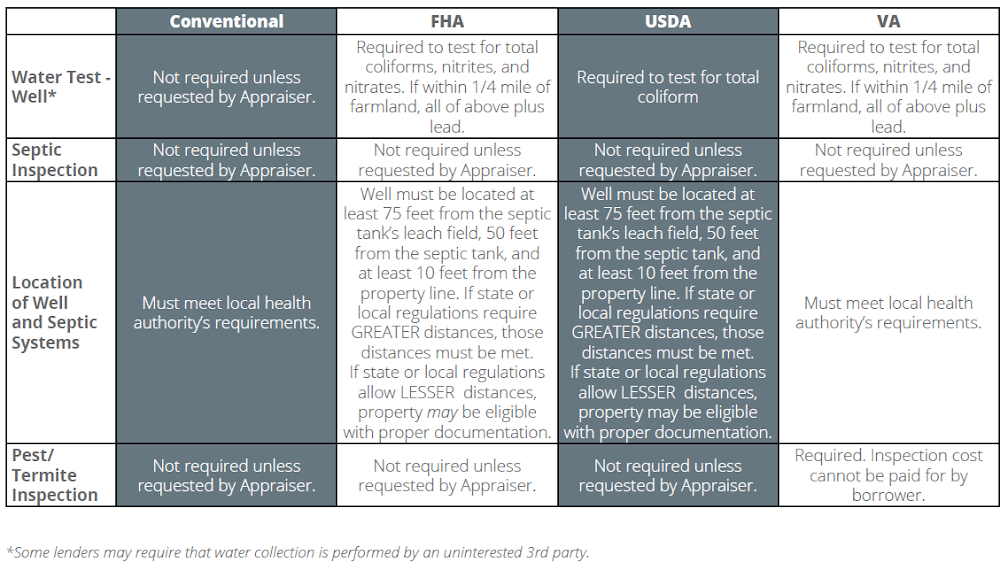Home appraisals are required by a lender. Home inspections aren’t.
You must set up an inspection yourself while the lender will order an appraisal for you.
An appraisal may impact your ability to get the loan amount you need. An inspection won’t.
Appraisers typically only spot things visible to the naked eye, whereas inspectors use special devices and training to spot deeper issues.
Home buyers are allowed and encouraged to walk through the home with the inspector during the inspection.
An inspector will explain and educate during the interactive process. An appraiser won’t tell you their findings until they complete their report.
A home inspection only examines the condition of the home when making the assessment. A home appraisal considers the condition of the home, comparable home prices, lot size, home features, area crime rates and school zones.
The inspector and appraiser have a different set of skills, are trained and certified in different processes and have different areas of expertise.
What Do Home Appraisals And Home Inspections Have In Common?
While they have different processes and serve a different purpose, appraisals and inspections do have a few things in common.
They both benefit the homeowner and the lender because they ensure the home is worth what you’re paying for it and that it’s safe to live in.
Both will uncover any issues that may affect the sale as well as help you feel secure in your decision to either purchase the home or walk away from the deal.
Both services are completed by a third-party professional who has nothing to gain or lose from the results so you can feel confident in their findings.
Usually, the homeowner is the one who pays for both the appraisal and the inspection.
While it may be more expensive, it’s recommended that you get both an appraisal and an inspection.
Why Should You Get An Appraisal And An Inspection?
The inspection that happens during the appraisal process will not be as in-depth as a separate home inspection. As the potential homeowner, it’s in your best interest to get an inspection along with your appraisal.
Wondering whether you should get an appraisal or inspection first? Usually, it’s best to put the inspection first. If expensive repairs or deal-breakers come up during the inspection, the appraisal is a moot point. This means planning the appraisal after inspection may wind up saving you time and money.
Mortgage Loan Officer
email: kentuckyloan@gmail.com






